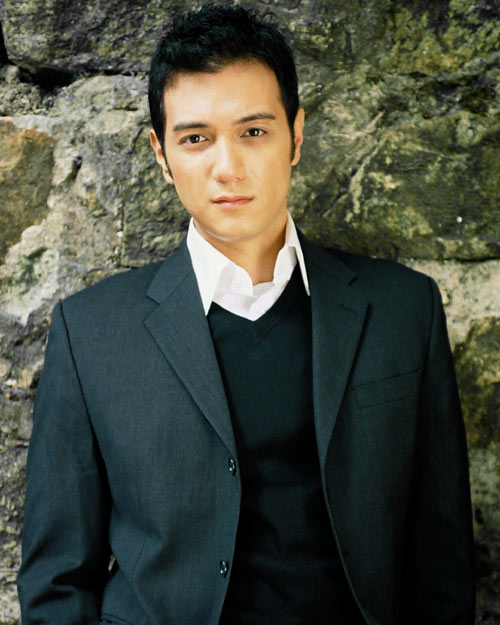Trinity Wall Street pays musical dividends with Britten

Tenor Nicholas Phan performed Britten’s “Nocturne” Thursday afternoon at Trinity Wall Street.
In case you missed the memo, this year marks Benjamin Britten’s centenary. Musical anniversaries can get a little tiresome, but Britten could use the extra attention more than Verdi or Wagner, so why begrudge him?
Trinity Wall Street is fully on the “Britten 100” bandwagon, presenting nearly one hundred works by the English composer from now until December. Leading nearly every concert of the fall with Britten is bold, to say the least, given that his music is notoriously polarizing. They had no trouble, though, drawing a capacity crowd for their season opener on Thursday afternoon.
The program began, appropriately, with Britten’s Opus 1, the Sinfonietta. Like many early works, it offers a sort of artistic “baby picture” from before the composer’s voice was fully developed. In this case, we hear the beginnings of Britten’s particular style of orchestration, with melodic ideas that are interesting but not yet as adventurous as in some of his later work.
NOVUS NY, Trinity’s resident contemporary music ensemble, was a perfect fit for the repertoire. Much of the Sinfonietta is written on a small scale, but occasionally the orchestration fills out and requires bold, fleshy playing. There were a few flubbed notes, but the flexible musicians met every challenge with an impressive combination of discipline and imagination.
They were particularly affecting in the slow movement, in which frequent sectional solos create shifting chamber ensembles, such as a warm and sentimental duet by violin principals Owen Dalby and Sharon Roffman. Julian Wachner, Trinity’s director of music and the arts, has a jumpy, bouncy, even awkward style of conducting, but it is apparently effective. His direction was both nuanced and clear; it is not difficult to get lost in Britten, but Wachner always seemed to know precisely what he wanted. Judging by the confidence with which they played, so did his musicians.
The concert also included two vocal works, featuring young soloists who could not have been more different from each other. The tenor Nicholas Phan performed the Nocturne, an eight-song cycle set to texts by famous English poets. Phan has a lot of commendable qualities, including a very firm connection to the text, which is especially important when the words were set down by such luminaries as Shakespeare, Shelley, and Keats. Part of this comes from his excellent diction, but more important is the conviction with which he sings. He is an exciting and visceral artist, taking a firm grasp of the music and making compelling and fully invested artistic decisions.
He does, however, have some vocal limitations that were hard to ignore on Thursday. Whenever he sang softly in his upper register, it felt as though his tone was on the brink of slipping away. In Tennyson’s “The Kraken,” he mustered as much power as he could but did not have enough in reserve to thunder when he really needed to. In Coleridge’s “Encinctured with a twine of leaves,” he was nearly inaudible, and NOVUS is not a ninety-piece band. When he didn’t have to push, though, he was marvelous, as in Wilfred Owen’s “The Kind Ghosts.” Here his tone was cool and keen, as he whispered nervously over the orchestra’s mad creeping.
Britten’s last vocal work, Phaedra, was a convenient counterpoise to the Sinfonietta that opened the program. In it, the mezzo-soprano Virginia Warnken seemed Phan’s polar opposite. “Ease” characterized every aspect of her singing: her diction was fuzzy, but her middle and upper registers rang effortlessly and there was no hint of struggle in her chest voice.
Struggle may in fact have been exactly what she needed: She made many sensible and meaningful musical choices, but she needed to own them more fully. Everything fit into place, but very little landed with emotional power. The final adagio, in which the dying queen warns that her time is running short, felt much less urgent than is indicated by the text or by Britten’s writing. She was composed throughout, but unfortunately composure is not what is called for in this piece.
Trinity Wall Street’s Britten celebration continues on September 8 with performances at 11:15 a.m. and 8 p.m.
Eric C. Simpson is the Hilton Kramer Fellow at The New Criterion.